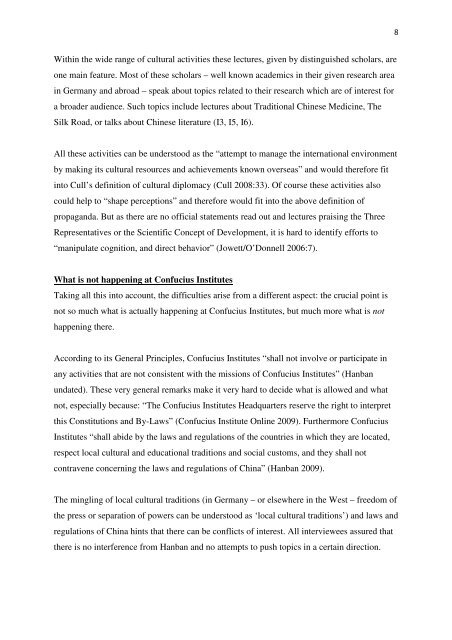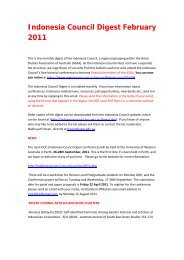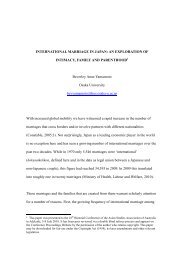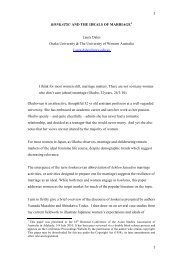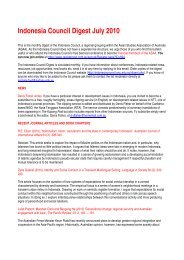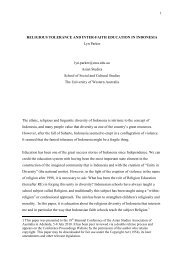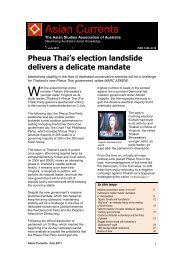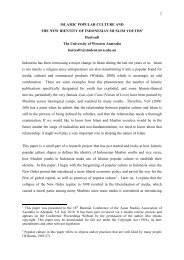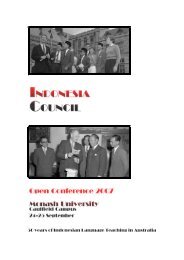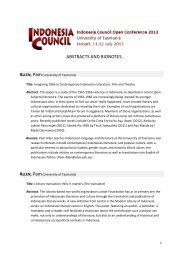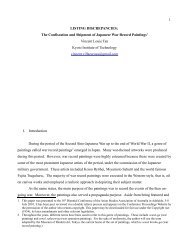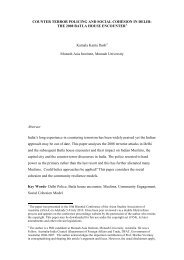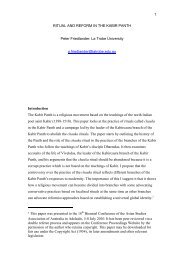CONFUSION ABOUT CONFUCIUS INSTITUTES Soft Power Push or ...
CONFUSION ABOUT CONFUCIUS INSTITUTES Soft Power Push or ...
CONFUSION ABOUT CONFUCIUS INSTITUTES Soft Power Push or ...
You also want an ePaper? Increase the reach of your titles
YUMPU automatically turns print PDFs into web optimized ePapers that Google loves.
Within the wide range of cultural activities these lectures, given by distinguished scholars, are<br />
one main feature. Most of these scholars – well known academics in their given research area<br />
in Germany and abroad – speak about topics related to their research which are of interest f<strong>or</strong><br />
a broader audience. Such topics include lectures about Traditional Chinese Medicine, The<br />
Silk Road, <strong>or</strong> talks about Chinese literature (I3, I5, I6).<br />
All these activities can be understood as the “attempt to manage the international environment<br />
by making its cultural resources and achievements known overseas” and would theref<strong>or</strong>e fit<br />
into Cull’s definition of cultural diplomacy (Cull 2008:33). Of course these activities also<br />
could help to “shape perceptions” and theref<strong>or</strong>e would fit into the above definition of<br />
propaganda. But as there are no official statements read out and lectures praising the Three<br />
Representatives <strong>or</strong> the Scientific Concept of Development, it is hard to identify eff<strong>or</strong>ts to<br />
“manipulate cognition, and direct behavi<strong>or</strong>” (Jowett/O’Donnell 2006:7).<br />
What is not happening at Confucius Institutes<br />
Taking all this into account, the difficulties arise from a different aspect: the crucial point is<br />
not so much what is actually happening at Confucius Institutes, but much m<strong>or</strong>e what is not<br />
happening there.<br />
Acc<strong>or</strong>ding to its General Principles, Confucius Institutes “shall not involve <strong>or</strong> participate in<br />
any activities that are not consistent with the missions of Confucius Institutes” (Hanban<br />
undated). These very general remarks make it very hard to decide what is allowed and what<br />
not, especially because: “The Confucius Institutes Headquarters reserve the right to interpret<br />
this Constitutions and By-Laws” (Confucius Institute Online 2009). Furtherm<strong>or</strong>e Confucius<br />
Institutes “shall abide by the laws and regulations of the countries in which they are located,<br />
respect local cultural and educational traditions and social customs, and they shall not<br />
contravene concerning the laws and regulations of China” (Hanban 2009).<br />
The mingling of local cultural traditions (in Germany – <strong>or</strong> elsewhere in the West – freedom of<br />
the press <strong>or</strong> separation of powers can be understood as ‘local cultural traditions’) and laws and<br />
regulations of China hints that there can be conflicts of interest. All interviewees assured that<br />
there is no interference from Hanban and no attempts to push topics in a certain direction.<br />
8


